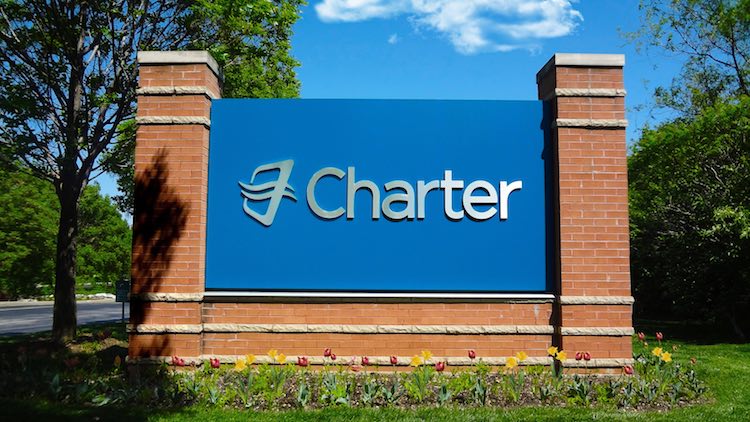Charter Settles NY 'Net Speed Claim Suit for $174.2 Million

The smarter way to stay on top of broadcasting and cable industry. Sign up below
You are now subscribed
Your newsletter sign-up was successful
The State of New York has secured a whopping $174.2 million settlement from Charter Spectrum) over the state's allegation that Spectrum failed to deliver on its promised internet speeds.
That is according to New York Attorney General Barbara Underwood, who announced the news in the following Facebook post, calling it the biggest-ever settlement by an ISP.
"Big win this morning: We’ve secured a record $174.2 million settlement with Charter-Spectrum for defrauding New Yorkers and promising internet speeds they couldn’t deliver.
"This is the largest-ever consumer payout by an internet service provider, returning tens of millions of dollars to New Yorkers who were ripped off and providing over $100 million more in streaming and premium channels as additional restitution.
"We are also requiring Charter to make major reforms that will set a much-needed precedent across the broadband industry:
- "They will have to substantiate their internet speeds through industry-accepted testing—and discontinue any plans that can’t be substantiated.
- "They will have to be truthful in their advertising, describe their internet speeds as “wired,” and disclose any factors that might lead a consumer’s actual experience to differ from what they have advertised.
The smarter way to stay on top of broadcasting and cable industry. Sign up below
- "They will have to provide internet subscribers with equipment that is actually capable of delivering the speeds they’ve advertised. If consumers have inadequate equipment, Charter will have to offer to ship or install free replacements via at least 3 contact methods.
- "Finally, following our investigation, Charter has made major improvements to its network.
Charter fought us at every major stage of the court proceedings. They moved to dismiss. They appealed. We won at every stage. Now consumers will see the results. I want every ISP to listen closely: fulfill your promises, or pay the price."
Then-
New York State Attorney general Eric Schneiderman had filed the initial complaint alleging that Time Warner Cable (before Charter acquired TWC and it became part of the Spectrum 'net brand) "promised to provide broadband speeds it knew it could not deliver and mischaracterized the reliability of access to certain online content."
Charter countered, in seeking to dismiss the complaint, that the allegations were preempted by the 2015 Open Internet's Transparency Rule and other FCC guidance, and that the state had failed to cite a legitimate cause of action because the FCC's speed test showed that TWC was "clearly capable of providing — and often did provide — the broadband speeds it advertised, and its “up to” representations thus could not have misled a reasonable consumer."
But a judge of the Supreme Court of the State of New York that the FCC doesn't have the authority to preempt state laws and that its speed claims are actionable. Charter also argued that other claims in TWC's ads were subjective "non-actionable puffery," which is actually a legal term for a promotional "exaggeration" that consumers aren't supposed to take seriously. But the judge said that while some of the claims were puffery, others were not and were actionable.
Charter Appeared to be ready to close the legal book on a chapter it did not start and move on.
“We are pleased to have reached a settlement with the Attorney General on the issue of certain Time Warner Cable advertising practices in New York prior to our merger, and to have put this litigation behind us. Charter has made, and continues to make, substantial investments enhancing internet service across the state of New York since our 2016 merger, as acknowledged by the Attorney General in this settlement. We look forward to continue providing the best TV, Internet, Voice and Mobile products to our customers, and to bringing broadband to more homes and businesses across the state.”
New York and Charter have a rocky relationship. The New York Public Service Commission ruled on July 27 that the cable operator had failed to comply with the broadband network expansion condition the state put on the deal, as well as related matters in which it was "deficient," and require Charter to come up with a plan within 60 days of how to wind down operations in the state.
Public Knowledge, sounding like a group elsewhere arguing against the feds preempting stronger state broadband regs and laws--it is--praised the settlement. “States play an essential role in protecting consumers from fraud and deception, especially in areas where the federal government cannot or will not fulfill that role," said senior counsel John Bergmayer. "Here, New York has stepped up to ensure that broadband consumers actually get the speeds they pay for, and to make whole consumers who were deceived in the past. Other states, and other broadband providers should take note.”
Contributing editor John Eggerton has been an editor and/or writer on media regulation, legislation and policy for over four decades, including covering the FCC, FTC, Congress, the major media trade associations, and the federal courts. In addition to Multichannel News and Broadcasting + Cable, his work has appeared in Radio World, TV Technology, TV Fax, This Week in Consumer Electronics, Variety and the Encyclopedia Britannica.

